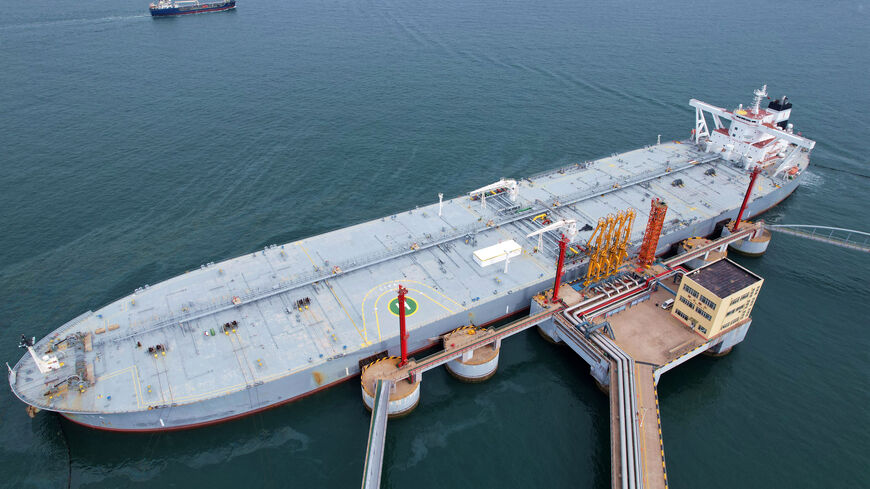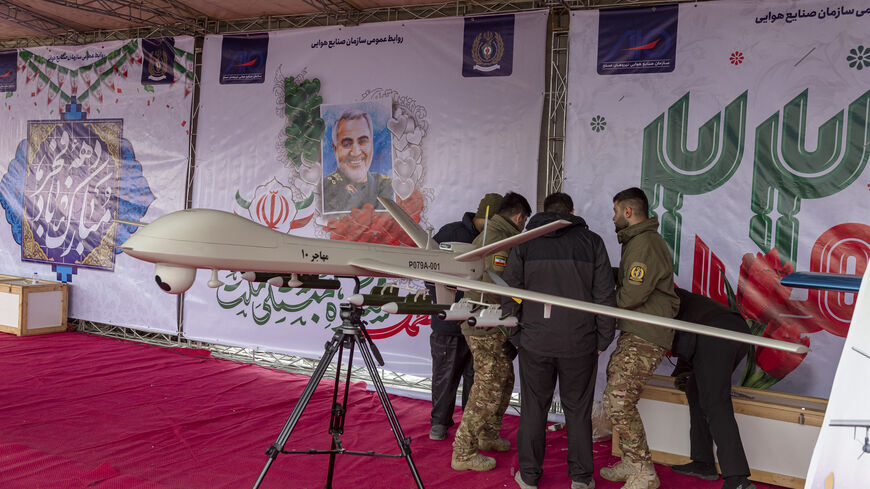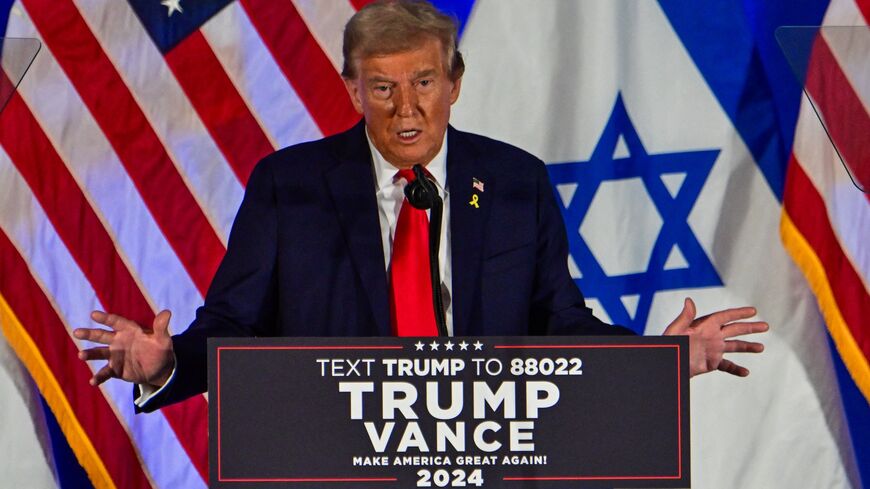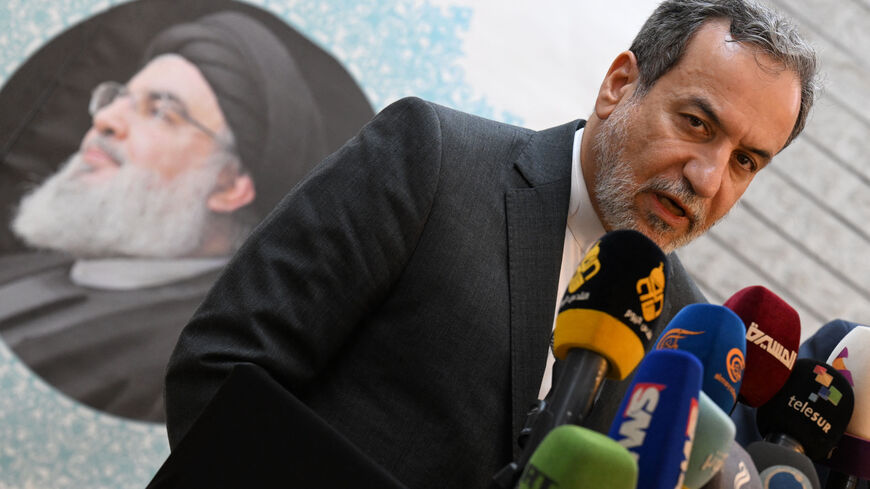Trump sends letter to Iran's Khamenei about negotiating nuclear deal
The president said he would prefer a diplomatic solution to Iran's nuclear program over the military option.
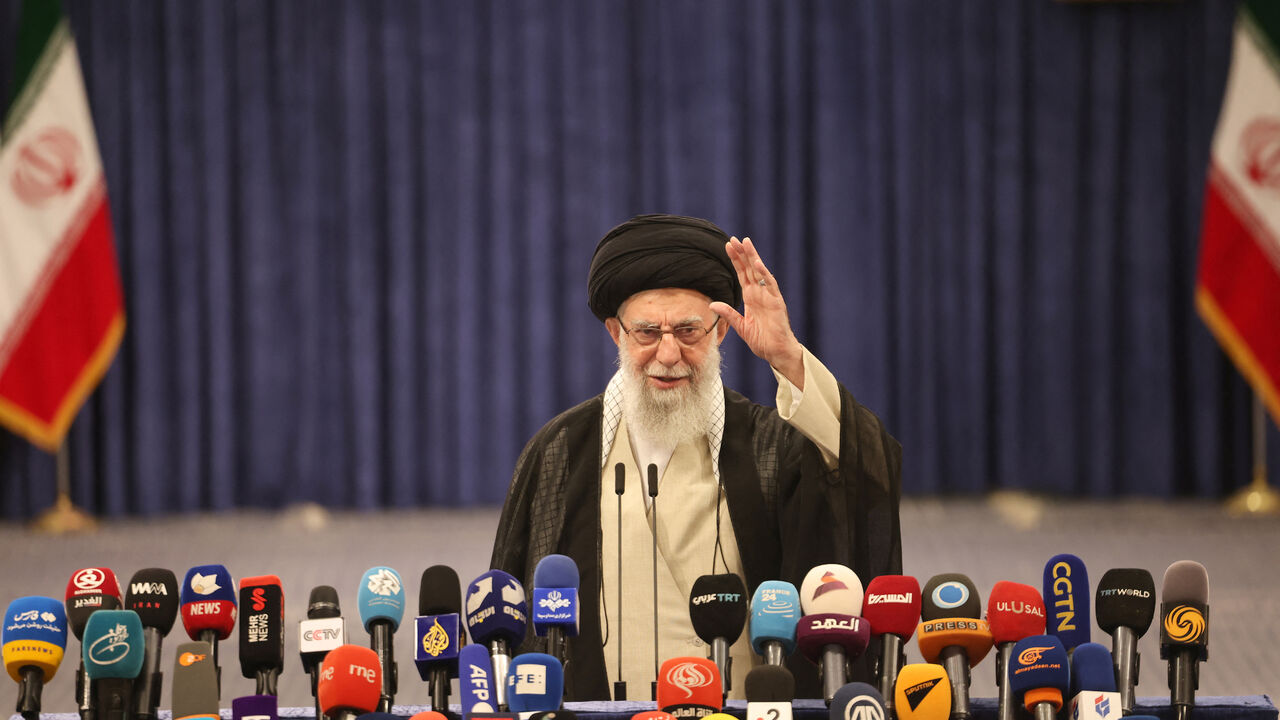
WASHINGTON — President Donald Trump says he’s written to Iran’s supreme leader, Ayatollah Ali Khamenei, about his desire to seek a new nuclear deal.
“I’ve written them a letter saying, ‘I hope you’re going to negotiate because if we have to go in militarily, it’s going to be a terrible thing,’” Trump said in an interview with Fox Business that aired Friday.
Trump's letter, which was sent Wednesday, is the first known direct engagement between Tehran and his administration. The White House did not immediately respond to Al-Monitor’s questions about the correspondence.
“We have not received such a letter so far," a representative for Iran's United Nations Mission in New York said Friday morning.
Former President Barack Obama, whose administration negotiated the landmark nuclear accord known as the Joint Comprehensive Plan of Action, sent several letters to Khamenei seeking cooperation on Iran’s nuclear program, the Islamic State and other issues. At the time, Republican lawmakers including Sen. Lindsey Graham of South Carolina called it “outrageous” that Obama wrote to Iran’s most powerful religious and political leader.
In his Fox interview, Trump told host Maria Bartiromo that “something’s going to happen one way or the other.”
“I hope you’re going to negotiate because it’s going to be a lot better for Iran,” Trump said. “The other alternative is we have to do something because you can’t let them have a nuclear weapon.”
During his first term, Trump withdrew the United States from the Obama-era deal that placed limits on Iran’s nuclear activity in return for sanctions relief. After dismantling what he called “the worst deal in history” in 2018, Trump imposed a slew of economic sanctions that saw foreign investment to Iran dry up and Iranian oil exports plummet.
Iran, which insists its nuclear program is for peaceful purposes only, responded to Trump’s so-called maximum pressure campaign by expanding its stockpile of highly enriched uranium to near weapons-grade levels. Experts say Tehran’s nuclear program is now too advanced to restore the 12-month "breakout time” of the original 2015 deal.
Ali Vaez, director of the International Crisis Group's Iran Project, said the Iranians are unlikely to come to the negotiating table absent Trump at least temporarily suspending his renewed maximum pressure campaign.
“The Iranians do not want to negotiate with a gun to their head,” Vaez said.
On Feb. 4, Trump signed an executive order to increase economic sanctions on the Islamic Republic and “drive Iran's export of oil to zero.” Vaez said that between Trump’s election and the signing of that memo, the Iranians had been publicly signaling interest in engaging with the United States.
“To say that they're willing to negotiate with the man who killed [Gen. Qasem] Soleimani is not a small thing,” Vaez said. Khamenei “shut the door only after Trump reimposed maximum pressure.”
Since taking office, the Trump administration has issued multiple rounds of sanctions targeting Iran’s oil trade as well as ballistic missile and drone programs. On Thursday, Treasury Secretary Scott Bessent said that the sanctions policy is designed to make Iran “broke again.”

